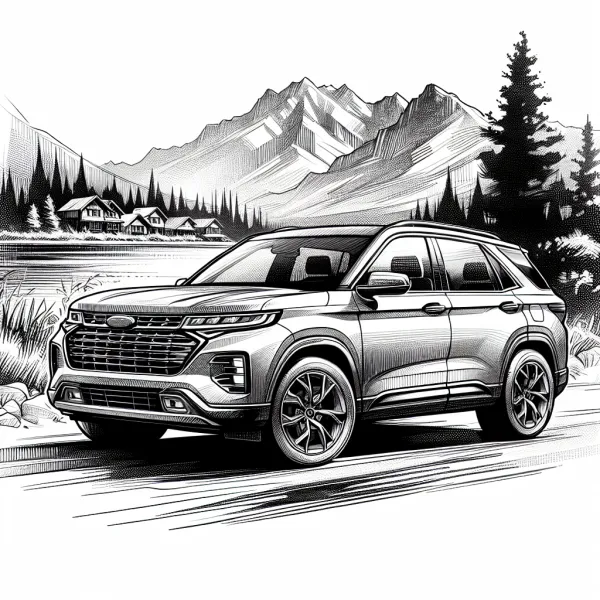Subaru Forester 2.5L: A Mechanic's Unfiltered Review (2020 Onwards)
Subaru Forester 2.5L: A Mechanic's Unfiltered Review (2020 Onwards)
So, you're thinking about a Subaru Forester 2.5L? Good choice for many, but let's cut the marketing fluff and get down to the nitty-gritty. I've seen thousands of these roll through my shop, and I'm here to give you the straight dope, from a mechanic's perspective. This isn't a sales pitch; it's a reality check.
Who's This Car For?
The Forester is a solid all-around vehicle. It's good for families, outdoor enthusiasts, and anyone who wants something practical and (relatively) reliable. Just don't expect sports-car performance.
Real-World Fuel Consumption
Forget the manufacturer's optimistic MPG figures. In the real world, expect to see anywhere from 22-28 mpg combined, depending on your driving habits and conditions. City driving will tank that number; highway driving will boost it. AWD will also impact fuel economy, reducing it slightly compared to a 2WD equivalent.
Common Problems (From a Mechanic's Perspective)
Let's be honest, nothing's perfect. Here's what I've seen consistently on the newer Foresters:
- Head Gasket Issues (rare but significant): While not as prevalent as in older Subarus, head gasket failures can still occur, especially with neglected maintenance or overheating. This is a BIG, expensive repair.
- Oil Consumption: Some owners report higher-than-expected oil consumption. Regular oil changes are crucial. Don't ignore that low oil light!
- CVT Transmission: Subaru's CVT transmissions have a mixed reputation. While generally durable, harsh driving or neglecting routine maintenance can lead to premature wear or failure. A failing CVT is a costly repair.
- Electrical Gremlins: Like many modern vehicles, the Forester has its share of electrical issues. Things like malfunctioning sensors, faulty wiring, and infotainment system glitches are common. Diagnosis can be tricky and time-consuming.
- Suspension Components: The suspension is relatively robust, but bushings and struts can wear out over time, especially on rough roads. This is a more common and relatively inexpensive repair.
Maintenance Costs
Oil changes are around $50-$80, depending on where you go. Brake jobs can run $300-$600. Tires are always a variable, depending on your choice. CVT fluid changes should be done according to the manufacturer's schedule, and it's not cheap. And remember that head gasket? Brace yourself for a $2000-$4000 repair.
Hidden Costs
Subaru uses specific oil types. Using the wrong oil can void warranties and damage the engine. Also, some repairs might require specialized Subaru tools, which can increase the cost if you're not using a dealership.
Overall Reliability
The newer Forester 2.5L is generally reliable, but it's not immune to problems. Regular maintenance is key to avoiding expensive repairs. Pay attention to warning lights and address issues promptly.
Total Cost of Ownership
This varies greatly depending on your driving habits, maintenance schedule, and how long you own the vehicle. Expect it to be somewhat higher than some competitors. It's not a cheap car to own, but the trade-off is often the all-wheel-drive and the overall practicality.
Resale Value
Subarus, particularly Foresters, tend to hold their value relatively well. They're popular and known for their reliability (mostly!), so you usually get a decent return when it's time to sell.
Tips for Prospective Buyers
- Pre-purchase inspection: Absolutely crucial. Find a reputable mechanic, not one affiliated with the seller.
- Check maintenance records: Thoroughly review the service history. Missing records are a red flag.
- Test drive thoroughly: Pay attention to any unusual noises, vibrations, or hesitation.
- Beware of overly low prices: If it seems too good to be true, it probably is.
Alternatives
Depending on your needs and budget, consider the Mazda CX-5, Honda CR-V, or Toyota RAV4. They're all strong competitors.
Conclusion
The Subaru Forester 2.5L is a decent vehicle, but it's not without its quirks. Regular maintenance is essential to keep it running smoothly and avoid costly repairs. Do your research, get a pre-purchase inspection, and weigh the pros and cons carefully before making a decision.
